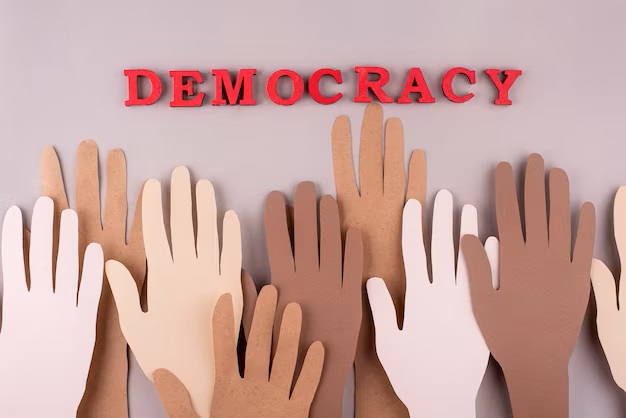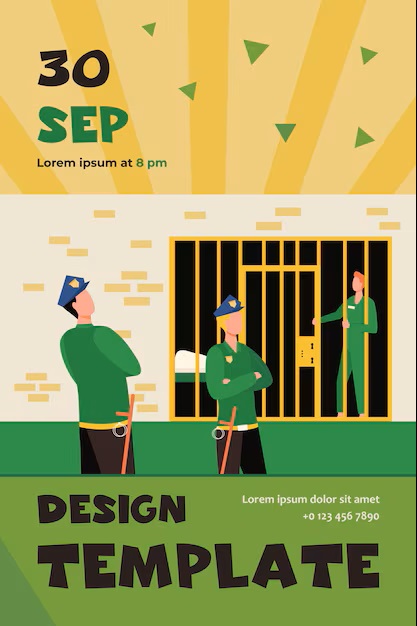The fabric of community interaction appears to be unraveling as recent assessments indicate a worrying trend in the manner individuals engage with one another. Many factors contribute to this situation, affecting the way we communicate and relate to differing viewpoints. The ongoing examination of these dynamics sheds light on the importance of fostering a respectful and understanding environment that allows for healthy discourse.
Recent studies have illuminated how the landscape of social interactions has shifted, reflecting a growing disconnect among populations. The challenges posed by misinformation, polarization, and the influence of technology play significant roles in shaping perceptions and attitudes. Understanding these shifts is crucial in seeking ways to cultivate a more respectful and constructive atmosphere in everyday conversations.
As we delve deeper into the insights gathered, it becomes clear that there is a pressing need for reflection and action. By promoting empathy and open-mindedness, society can work towards bridging the gaps that divide us. Emphasizing the value of mutual respect in communication can lead to more productive exchanges, ultimately benefiting our collective social fabric.
Understanding the ABA Civics Poll Results
This section aims to elaborate on insights gathered from a recent survey focused on public sentiment regarding governance, community engagement, and the role of institutions in society. The data presents a comprehensive view of people’s perceptions and behaviors, shedding light on important trends and attitudes that shape civic life.
Key aspects highlighted in the survey include:
- Individuals’ understanding of governmental processes
- The importance of community involvement for a functioning society
- Perceptions of trust in various institutions
- Awareness of civic responsibilities among the populace
The results indicate a notable variation in how different demographics engage with civic activities. Understanding these distinctions can help address gaps in knowledge and participation. For instance:
- The level of education appears to influence civic engagement positively.
- Younger individuals express different attitudes towards governance compared to older generations.
- Community events and local initiatives tend to foster a stronger sense of belonging and responsibility.
Overall, the insights serve as a catalyst for dialogue about enhancing public understanding and participation in civic matters, encouraging a renewed focus on collective responsibility and informed citizenship.
Factors Contributing to Civility Decline
The erosion of courteous discourse in society can be attributed to a multitude of interconnected elements that shape interpersonal interactions and communal relationships. As these influences intertwine, they foster an environment in which respectful communication becomes increasingly rare.
One significant factor is the pervasive nature of digital communication. The rise of social media platforms has transformed the way individuals express opinions and engage in discussions. Anonymity can exacerbate harsh attitudes, leading to interactions that lack consideration and empathy.
Additionally, political polarization has intensified in recent years, creating an atmosphere where dissenting viewpoints are often met with hostility rather than constructive dialogue. This division can hinder collaborative efforts and reinforce an ‘us versus them’ mentality.
Moreover, the diminishing role of education in fostering critical thinking skills has contributed to this issue. Educational institutions may focus more on rote memorization rather than encouraging open-minded debate and respectful disagreement, impacting how individuals engage with differing perspectives.
Lastly, societal pressures and the fast pace of modern life can lead to stress and frustration, minimizing patience and tolerance in everyday interactions. As individuals navigate various challenges, the propensity to engage in courteous behavior often diminishes, further perpetuating a cycle of discord.
Impact on Society and Governance
The growing erosion of mutual respect and understanding in public discourse has significant implications for both community dynamics and political frameworks. A widespread lack of constructive communication can lead to fragmentation, diminishing the potential for collaboration among diverse groups. This disconnection undermines the foundations of a cohesive society, where dialogue and compromise are essential for progress.
As members of society increasingly retreat into echo chambers of like-minded individuals, the ability to engage with differing perspectives becomes severely hindered. This withdrawal not only stifles the richness of debates but also fosters an environment where misinformation can thrive. Consequently, the decision-making processes that govern our communities suffer, as the voices of the populace become polarized.
Additionally, the absence of respectful engagement can affect the mechanisms of governance itself. When citizens feel disenfranchised or unheard, their trust in public institutions wanes. This loss of faith can lead to apathy, diminishing civic engagement and participation in democratic processes. In turn, this creates a vicious cycle where elected officials may prioritize divisive tactics over consensus-building, further exacerbating the existing disconnect.
In essence, the deterioration of respectful interaction within society poses a threat not only to social harmony but also to the effective functioning of governance. For a healthy democracy to thrive, it is crucial to cultivate a culture of dialogue that encourages listening, understanding, and cooperation among all stakeholders.
Demographic Insights from the Poll
The analysis of various societal groups provides a deeper understanding of public sentiment and attitudes. By examining the characteristics of respondents, we can identify distinct trends that highlight differences in perspectives based on age, education, and geographic location. These aspects play a crucial role in shaping the collective opinions within the community.
Age Group Dynamics
Younger individuals often express differing views compared to their older counterparts. This generational divide can influence responses on significant issues, suggesting that life experiences shape opinions and beliefs over time. Understanding these dynamics allows for more targeted approaches in fostering dialogue and understanding among differing age groups.
Geographic Variations
Location significantly impacts individual outlooks. Urban lifestyle tends to nurture particular values that contrast with those held in rural areas. These geographical differences highlight the importance of local context in shaping attitudes, suggesting that tailored strategies are necessary to bridge varied perspectives and promote constructive engagement.
Comparative Analysis with Previous Polls
This section evaluates shifts in public attitudes through a comparative lens, exploring alterations over time in how individuals perceive social interactions and governance. By looking back at earlier surveys, we can better understand the trajectory of collective sentiment and identify patterns or changes that warrant attention.
Trends Observed Over Time
- Earlier surveys indicated a greater sense of community and trust in civic institutions.
- Recent assessments illustrate a growing discontent with public discourse and engagement.
- Shifts in perception regarding the role of government have also been noted, reflecting deeper societal anxieties.
Key Comparisons
- The percentage of individuals expressing confidence in their neighbors has decreased significantly, contrasting with historical data.
- Views on cooperation among different demographics have shown a notable decline, highlighting changing dynamics.
- Overall satisfaction with civic participation has shifted, with fewer respondents reporting a positive experience in community activities.
Strategies to Foster Civil Discourse
Encouraging respectful communication among individuals is essential for a harmonious society. By implementing effective approaches, we can cultivate an environment where diverse perspectives are valued and discussions are constructive. This is crucial for promoting understanding and collaboration, ultimately strengthening the social fabric.
Create Safe Spaces: Establishing environments where individuals feel comfortable expressing their opinions without fear of ridicule is vital. Safe spaces can be cultivated in community centers, schools, and online forums, fostering open and honest exchanges of ideas.
Encourage Active Listening: Teaching individuals the importance of truly hearing one another can transform conversations. Active listening involves focusing on the speaker, acknowledging their points, and responding thoughtfully, rather than preparing a rebuttal while the other person is talking.
Promote Empathy: Understanding differing viewpoints begins with empathy. Encouraging people to put themselves in others’ shoes can help bridge gaps between conflicting opinions. Workshops and discussions that focus on storytelling can facilitate this practice, allowing personal experiences to inform broader conversations.
Model Respectful Dialogue: Leaders and influential figures play a crucial role in setting the tone for discussions. By demonstrating respectful communication and addressing controversial topics with poise, they can inspire others to engage in similar behavior and contribute positively to the discourse.
Implement Educational Initiatives: Integrating programs that focus on critical thinking and debate skills in schools can equip future generations with the tools needed for thoughtful engagement. Teaching students how to navigate disagreements constructively can foster a culture of respect from a young age.
Encourage Diverse Participation: Actively seeking input from a wide range of demographics can enhance discussions. When individuals from various backgrounds contribute their perspectives, it enriches dialogues and nurtures a more inclusive atmosphere.
By employing these strategies, society can work towards nurturing a culture of respectful and meaningful interactions, where individuals can engage with one another constructively and collaboratively.
Future Implications for Civic Engagement
As the landscape of community participation continues to evolve, it becomes imperative to examine the potential outcomes for future interactions among citizens. These shifts may shape the ways individuals connect with one another and their government, ultimately influencing the fabric of society.
The growing disconnect between various segments of the population raises concerns about the effectiveness of democratic processes. Active participation in public discourse is crucial for a thriving democracy, and a lack of engagement can lead to an erosion of trust in institutions.
Moreover, the rise of technology and social media presents both challenges and opportunities. Innovative platforms for communication can foster dialogue, but they may also contribute to polarization. As individuals are increasingly exposed to echo chambers, fostering constructive conversation becomes essential.
Education will play a pivotal role in shaping future societal dynamics. By equipping individuals with the skills necessary for thoughtful argumentation and critical thinking, society can cultivate a generation that values respectful discourse and informed decision-making.
In summary, the trajectory of community involvement will significantly impact not just governance, but also the quality of life for individuals. Emphasizing mutual respect and understanding is key to ensuring that civic engagement continues to flourish in the years to come.
Q&A: Civility is decline aba civics poll finds
What are the main findings of the ABA Civics Poll regarding civility in society?
The main findings of the ABA Civics Poll indicate a significant decline in civility among Americans. The poll revealed that a majority of respondents believe that political discourse has become more hostile and that respect for differing opinions is diminishing. Additionally, many participants expressed concern about the impact this decline in civility has on democratic processes and community relationships, highlighting issues such as increased polarization and a lack of constructive dialogue.
How does the decline of civility impact democratic processes according to the poll?
The poll suggests that the decline of civility can have detrimental effects on democratic processes. When public discourse becomes increasingly hostile, it can lead to a breakdown in meaningful communication between citizens, elected officials, and various stakeholders. This polarization often results in the inability to find common ground on important issues, leading to gridlock in governance. Moreover, when individuals feel disrespected or marginalized, they may disengage from civic participation, further weakening the democratic system. Overall, a lack of civility undermines the foundations of democracy by fostering an environment where collaboration and mutual respect are crucially needed.
What factors might contribute to the decline of civility in society, as indicated by the poll?
Several factors may contribute to the decline of civility in society, as highlighted by the ABA Civics Poll. These include the rise of social media, which often fosters anonymous interactions that can lead to inflammatory remarks and a lack of accountability. Additionally, the growing prevalence of partisan news sources can create echo chambers that amplify divisive rhetoric. Other contributing elements might include cultural shifts toward individualism and a decrease in face-to-face interactions, which historically might have promoted empathy and understanding. Lastly, the current political climate, marked by intense partisanship and divisive issues, further exacerbates tensions and undermines civil discourse.
What steps can be taken to improve civility in public discourse as suggested by experts?
Experts suggest several strategies to improve civility in public discourse. First, fostering open and respectful communication is crucial—encouraging people to listen actively and engage with opposing viewpoints can help bridge divides. Educational initiatives focused on civic engagement and critical thinking can equip individuals with the skills needed for constructive dialogue. Additionally, promoting community-building activities can strengthen relationships among diverse groups, fostering a sense of shared purpose. Social media platforms also have a role to play by implementing guidelines that discourage hate speech and promote respectful interaction. Ultimately, cultivating an environment that values empathy, respect, and understanding is essential for reversing the decline of civility.
What can individuals do to promote civility in their daily lives?
Individuals can take several actions to promote civility in their daily lives. Firstly, practicing active listening during conversations—making an effort to understand others’ perspectives—can lay the groundwork for civil discourse. Additionally, using respectful language, especially when discussing contentious issues, can help set a positive tone. Engaging in community service and participating in local discussions can build a foundation for constructive interactions and strengthen community ties. Furthermore, individuals should strive to model civil behavior online and offline, encouraging friends and family members to do the same. By embodying the principles of respect, empathy, and open-mindedness, individuals can contribute to a more civil society and inspire others to follow suit.
What are the main findings of the ABA Civics Poll regarding the decline of civility in society?
The ABA Civics Poll reveals a concerning trend toward declining civility in the United States. Among the key findings, many respondents indicated that they perceive a decrease in respectful discourse in both public and private settings. The poll highlights that a significant portion of the population feels that political disagreements often lead to personal attacks rather than constructive discussions. Additionally, the data shows that people are increasingly reluctant to engage in conversations about contentious issues due to fears of hostility or backlash. This trend suggests a growing division in society, making it critical for educational and community initiatives to promote civil discourse and understanding among diverse viewpoints.
How does the decline of civility impact democratic processes according to the ABA Civics Poll?
The decline of civility, as indicated by the ABA Civics Poll, poses a significant threat to the democratic processes in the U.S. When civil discourse deteriorates, it impedes effective communication and collaboration across different political and social groups. The poll suggests that this decline fosters environments where misinformation and fear can proliferate, leading to increased polarization. Such an atmosphere can disenfranchise citizens, making them feel that their voices are not valued or heard. Ultimately, this creates barriers to participation in democratic processes, undermining the principles of democracy where open debate and mutual respect are essential for progress and decision-making. To counteract this, it is crucial for communities, leaders, and institutions to prioritize civility in dialogue, encouraging participation and fostering a culture of respect and understanding.
What were the key findings of the ABA 2023 survey of civic literacy regarding Americans’ beliefs about civility and the responsibility for improving it?
The ABA 2023 survey of civic literacy revealed that a majority of Americans believe civility is worse now than it was 10 years ago. The survey also indicated that many respondents said public officials hold the primary responsibility for improving civility in our society. ABA President Deborah Enix-Ross emphasized that instilling civility in children is essential, suggesting that parents and family, along with government leaders, should work toward compromise on issues such as immigration reform and gun rights. The findings underline the importance of public officials in promoting civility, especially ahead of Law Day on May 1.
What role do civic education and understanding of government play in instilling civility according to the ABA’s findings?
According to the ABA survey of civic literacy, a foundational understanding of the three branches of government and the cornerstones of democracy is crucial for instilling civility in society. The survey indicated that Americans believe learning how our government works is essential for improving civility. The Chair of the ABA Cornerstones of Democracy Commission stated that education in civics is vital for helping us build a better society. By engaging in discussions about government responsibilities, such as public officials working toward compromise on contentious issues like reproductive rights and gun rights, we can foster an environment where civility can thrive.
What insights did the fifth ABA survey of civic literacy provide regarding the perception of civility in today’s society?
The findings of the fifth ABA survey of civic literacy revealed that a significant number of Americans believe society is worse in terms of civility compared to 10 years ago. Specifically, 79% of respondents said civility has deteriorated, with many attributing this decline to social media. ABA President Deborah Enix-Ross emphasized that public officials are primarily responsible for improving civility and should be held accountable for instilling civility within the community. The survey highlighted the importance of learning how our government works as a way to promote civics and encourage government leaders to work toward compromise on contentious issues like reproductive rights and gun rights.
How does the American Bar Association suggest improving civility in society based on the recent survey results?
The American Bar Association suggests that improving civility in society involves a collaborative effort from various leaders and community members. The recent survey results indicated that Americans believe they need to develop a better understanding of the three great cornerstones of democracy. ABA President Deborah Enix-Ross stated that there is a responsibility for instilling civility, not only among public officials but also among parents and families. By engaging in civic education and discussions about how government works, including the naturalization test and the responsibilities of citizens, we can work toward creating a more civil society. The ABA also highlighted the need for leaders to work toward compromise on issues like social security and gun rights as a practical way to foster civility.
What role does the American Bar Association see for public officials in instilling civility, based on the findings of the recent survey of civic literacy?
The American Bar Association highlights that public officials are primarily responsible for instilling civility in society, a sentiment echoed by ABA President Deborah Enix-Ross. The recent survey of civic literacy revealed that 79% of Americans believe society is less civil now than it was 10 years ago, with many respondents blaming social media for this decline. The survey also found that understanding how our government works is crucial in promoting civics and fostering civility. By engaging in discussions around these topics during a virtual panel discussion, officials and community leaders can work toward developing a better knowledge of U.S. governance. This understanding inevitably will help us build a more civil society by encouraging compromise on contentious issues like reproductive rights and gun rights, allowing leaders to hold their ground while seeking common ground with opposing viewpoints.
What findings did the recent survey of civic literacy reveal about public perceptions of civility and the influence of social media?
The recent survey of civic literacy indicated that 79% of Americans believe civility is worse than it was 10 years ago, with many respondents saying social media plays a significant role in this decline. ABA President Deborah Enix-Ross emphasized the importance of “learning how our government works” as a vital way in promoting civics and improving societal interactions. The survey also asked about the responsibilities of public figures, including Chief Justice John Roberts and Justice Clarence Thomas, to foster civility through their leadership. On behalf of the ABA, it was noted that understanding these three great components of governance is essential for citizens. The survey included 14 multiple-choice questions that explored how individuals perceive civility and its impact on issues such as compromise on reproductive rights and gun rights. The findings suggest that there is a critical need for both government officials and citizens to work together in developing a deeper understanding of these issues to encourage a more civil discourse in society.
What insights did the survey of civic literacy provide regarding the state of civility in society and the importance of civic education?
The survey of civic literacy revealed that 79 % of respondents believe civility is worse than it was 10 years ago. ABA President Deborah Enix-Ross highlighted the necessity of “learning how our government works” to foster better civic engagement. The survey also asked participants about the definition of civility, suggesting that a deeper understanding of these three great pillars of democracy is essential. Enix-Ross stated that improving civic education is crucial for helping individuals hold their ground until they win debates on important issues, such as compromise on gun rights. The Annenberg Public Policy Center found that there is a pressing need for society to focus on works and developing an understanding of how government functions. This foundation can encourage more constructive dialogue among citizens, particularly when discussing contentious topics and how social media influences perceptions of civility.
What did the survey of civic literacy asked about the perception of government in recent years?
The survey of civic literacy also indicated that many respondents believe the state of government works and developing civic engagement is worse than 10 years ago. The survey results revealed a significant concern, as said ABA president Deborah Enix-Ross, who emphasized that “learning how our government works” is crucial for improving civic understanding. She also noted that many participants said it was better and 6 out of 10 expressed a desire to go into my social media for more information on civic issues, highlighting a gap in civic knowledge and engagement.








